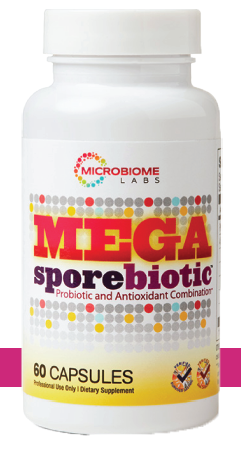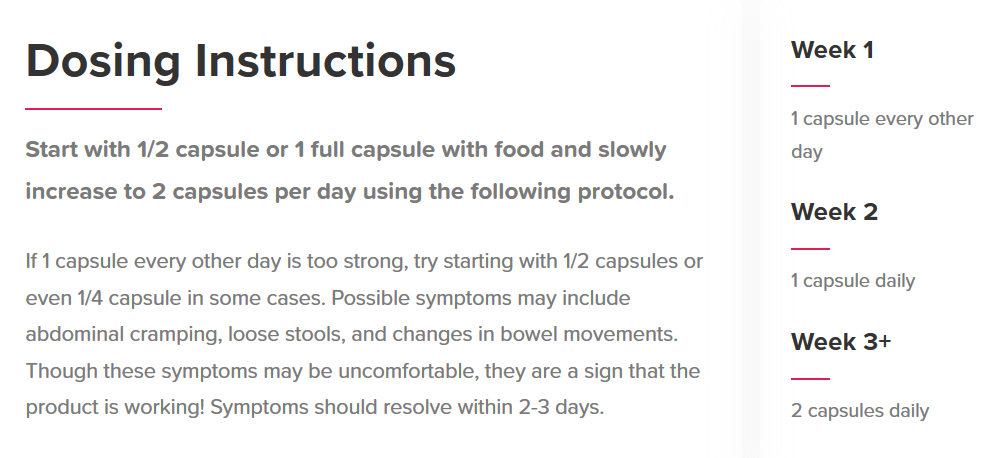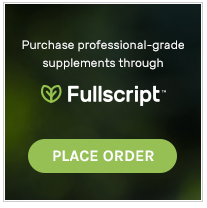MegaSporeBiotic - A Bacillus Spore Bacteria Probiotic Supplement
 |
MegaSporeBiotic is an all-Bacillus species, pharmaceutical-grade probiotic supplement with 5 different species in it. It is marketed as a "probiotic and antioxidant combination." It is manufactured for Microbiome Labs in Saint Augustine, Florida, USA, and is part of their Total Gut Restoration program. |
Which Probiotic Strains are in MegaSporeBiotic?
The 5 kinds of Bacillus bacteria are:
- Bacillus indicus HU36
- Bacillus subtilis HU58
- Bacillus coagulans SC-208
- Bacillus licheniformis SL-307
- Bacillus clausii SC-109
What Does Research Show About These MegaSporeBiotic Bacteria?
If you haven't read my overview of Bacillus species, then I recommend that you do that before delving into the specifics about this product so that you understand how Bacillus bacteria act in your digestive tract.
In the past, when research studies on the probiotic strains in this product were first published, there weren’t studies I could find beyond petri dish and animal studies with one or maybe two of the strains. As time passed, studies with some of the individual strains in a simulated human intestinal environment, SHIME (simulator of the human intestinal microbial ecosystem) were performed, showing more potential.
Still, it was hard to discern how these combined strains would act in a human. Some of them stimulated the immune system, some of them produced vitamins, one produced carotenoids…but how would they act together in a digestive tract?
Now I am so very pleased to see that there are studies with this product in human clinical trials and with some of the strains in a dog clinical trial! (Yes, dogs get leaky gut, too!) And, very excitingly, there are many more clinical studies nearing completion, in progress, and being planned. Here is a sampling of subjects of clinical trials, pilot studies, and other research that Microbiome Labs has planned or will soon publish (I will update this page accordingly):
- Cancer immunotherapy
- Immune modulation
- Secretory IgA
- Chronic inflammation
- Microbial diversity
- Glyphosate effect on microbiome
- Dermatology
- Triglycerides
- Periodontal disease
- Rheumatoid arthritis
- many more!
You can see that the research on this product is exploding, which is super helpful to know for what conditions this product is effective. Research on a product as a whole is the best indicator of why we can expect from it.
Does MegaSporeBiotic Recondition the Gut?
“Recondition” basically means repair. So, does this supplement do that? Let’s look at research recently published.
Leaky Gut Syndrome
Dietary
endotoxemia is a phenomenon in which blood levels of endotoxins
increase after a meal. It is a sign that of a disruption in intestinal
permeability (AKA leaky gut), the microbiota, or both, and causes
transient increases in systemic (body-wide) inflammation. Numerous
researchers have demonstrated that consumption of one high-fat,
high-calorie meal was associated with increases in serum (blood)
endotoxins, triglycerides, and various inflammatory markers.
Not
everyone who consumes such a meal experiences an exaggerated response to
the meal, but estimates from one proof-of-concept study showed that
one-third (1/3) of people in Western society do. “Responders” are those
who experience at least a 5-fold increase in dietary endotoxemia within 5
hours after consuming a high fat, high calorie meal.
To
investigate the effect of Megaspore probiotic on leaky gut syndrome, a
small 2017 study with 28 young healthy men and women responders
investigating the effect of 2 capsules per day (4 billion CFU total) was
undertaken. Responders were selected after consuming a high-fat meal
from thin-crust cheese pizza (approximately 1600 calories and 89 g of
fat) and randomized to receive either Megaspore or placebo for 30 days.
The same meal was provided at the end of the study to assess
improvements in the responders. Compliance was impressive at greater
than 95%.
The results showed that this spore-based probiotic supplementation was associated with a 42% reduction in endotoxin (P = 0.011) and 24% reduction in triglyceride (P = 0.004) in the post-meal period. Participants taking the placebo experienced a 36% increase in endotoxin (P = 0.011) and 5% decrease in triglycerides (P = 0.004) over the same post-prandial period.
The probiotic supplementation was also associated with significant post-meal reductions in two markers of inflammation, IL-12p70 (P = 0.017) and IL-1β (P = 0.020). Probiotic participants also had less ghrelin, the hunger hormone, in their blood compared to placebo subjects.
The conclusion was that Megaspore
reduced symptoms related to leaky gut syndrome. In every day speech,
what this meant is that consumption of the probiotic supplement helped
with the repair of the gut lining, the decrease of inflammatory markers,
and the decrease of LPS into the bloodstream.
Microbial Diversity and SCFA
A
2019 study referenced by another study, but not yet published at the
time of this writing, used three different donor stool samples (two men and one woman) in the
validated in vitro Mucosal Simulator of the Human Intestinal Microbial
Ecosystem (M-SHIME®) and Megaspore. Tentative results showed that
Bifidobacterium levels increased for all 3 donors, short-chain fatty
acids (SCFA) were increased, and either Akkermansia muciniphilia or
Faecalibacterium prausnitzii were stimulated. Increases of
Bifidobacterium, Akkermansia, and Faecalibacterium, all keystone species
for a healthy gut, are a good sign.
Another 2019 study with
Megaspore and a prebiotic blend, MegaPrebiotic, as synbiotics, presented
results on potential synergistic effects with the products on microbial
metabolic activity and the composition of the microbial community in
the same in vitro M-SHIME® using the donor stool samples from three
individuals. This study also utilized mucin beads to simulate
mucus-associated microbial communities.
Across the three
different donors, significant increases of Bifidobacterium and
Lactobacillus probiotic species occurred in the luminal and mucosal
ecosystems, except in the ascending colon area where the bifidos trended
to increase. F. prausnitzii significantly increased in the lumen of the
transverse and descending colons and also increased in the simulated
mucus layer in all areas of the colon. A. muciniphilia significantly
decreased in the luminal and mucosal environments in the descending
colon of all three donors. Microbial diversity increased in the distal
parts of the simulated colon. Diversity in the distal parts of the colon
is generally a good thing.
Short-chain fatty acid level results
with the synbiotic, which contains the prebiotic, differed from the probiotic-only study results as
might be expected. The probiotic-only resulted in a sizeable production
of butyrate in only one donor, whereas the synbiotic resulted in a
consistently strong increase in butyrate levels for all donors tested in
all areas of the colon.
The difference is due to the fact that the
synbiotic contained prebiotics to feed selective bacteria that lead to
increased butyrate production. Increases in butyrate are associated with
reduced leaky gut, increased satiety, reduced inflammation, and a host
of other benefits.
Other Research Studies with MegaSporeBiotic
Liver Protection
A February, 2020 study in 35 rats investigated the effect of MegaSporeBiotic on liver injury caused by acetaminophen. Acetaminophen, with Tylenol as a common example, is a popular over-the-counter pain and fever medication known to cause liver injury and failure in high doses. Most acetaminophen is metabolized to non-reactive substances in the liver. However, some of the acetaminophen dose is oxidized by liver enzymes to a reactive metabolite that in excess amounts depletes liver glutathione (antioxidant) storage, resulting in damaging oxidative stress and mitochondrial dysfunction.
In this study, rats were divided into 7 categories:
- Group 1 was the control
- Group 2 received 100 mg/kg/d of silymarin, also known as milk thistle, as a known liver-protective herb
- Group 3 received MegaSporeBiotic (MSB) 1 billion CFU/d
- Group 4 received 2g/kg acetaminophen
- Group 5 received 2 g/kg acetaminophen and 100 mg/k/d silymarin
- Group 6 received 2 g/kg acetaminophen and MSB 1 billion CFU/d
- Group 7 received 2g/kg acetaminophen, 100 mg/kg/day silymarin, and MSB 1 billion CFU/d
The selected groups of rats were pre-treated with the control solution, silymarin, or MSB through a feeding tube for 12 days. Groups 4-6 received a single dose of acetaminophen through a feeding tube on the 11th day. On the 13th day, blood samples were taken and liver tissue examined.
High liver enzymes of ALT and AST are indicative of liver injury. Liver injury also results in increased serum levels of tight junction protein-1 (zonula occludens-1), which is indicative of leaky gut. As expected, the rats given only acetaminophen exhibited significantly high levels of AST and ALT compared to controls. Pretreatment with silymarin, MSB, or both, significantly and comparatively reduced the toxic effect of acetaminophen on the livers of the rats by reducing ALT and AST, reducing the inflammatory cytokine IL-1B, increasing the total antioxidant capacity, decreasing liver tissue damage, and decreasing zonula occuldens-1.
The combination of silymarin and MSB reduced pro-inflammatory IL-1B and TNF-a to normal levels.
What Other Ingredients are in MegaSporeBiotic?
The other ingredients at the time of this writing are cellulose and a cellulose-and-water vegetable capsule.
It is dairy free, gluten free, soy free, corn free, allergen free, and very importantly, non-GMO.
Please always verify ingredients before taking any supplement!
What is the Recommended Dosage of MegaSporeBiotic?
Microbiome Labs' dosing instructions recommend that this supplement be started slowly and taken with food. Start with one-half capsule, or even one-fourth capsule, or one complete capsule every other day for the first week.
Increase to one capsule daily the second week.
Increase to 2 capsules per day starting with the third week.
It is important that you start this product slowly in order to reduce the risk or severity of die-off or gut-healing actions.
These are the dosing instructions from the MegaSporeBiotic website. Note the possible side effects and how it is recommended that you deal with them:

What are the Pros of MegaSporeBiotic?
The pros of this probiotic supplement as I see them are:
- There are 5 different strains in the product so it is multi-species.
- All of the strains have been genetically identified (very important for Bacillus species!)
- The other ingredient is cellulose, so there are no binders, fillers or flow agents
- It is non-GMO
- It is allergen free
- Two of the listed strains have individual studies: Bacillus indicus HU36 and Bacillus subtilis HU58. Both of these strains are well-characterized and appear to not have toxicity or virulence capabilities. The HU36 strain is documented to have potent and bioavailable carotenoids in vitro and in mice.
- Each capsule contains 2 billion organisms which is typical for products with Bacillus species
- Bacillus species are spore bacteria, so they are able to revert to a dormant state rather quickly when conditions are not favorable for their growth. When conditions are favorable, they sporulate.
- The capsule can be opened and contents sprinkled on food
- No refrigeration is required.
What are the Cons of MegaSporeBiotic?
There aren't many cons of this probiotic supplement as I see them:
- Only the total CFU is given so you don’t know how much of each species is present, but this is irrelevant since clinical trials are being performed with the supplement as a whole.
- It contains only one genus of bacteria, Bacillus
Where to Find MegaSporeBiotic?
There are 2 conditions that should be adhered to if you wish to take this probiotic supplement:
- You must follow their dosing instructions
- You must not take it if you are immune-compromised or have a health status of which your doctor advises that you not use probiotics or this particular probiotic.
If you agree to adhere to those 2 conditions, you can find it through my portal at Microbiome Labs under Chrysalis Nutrition and Health, or enter the code POP2020 at this link to the Microbiome Labs website. You can also find a supplement for dogs, Fidospore, there, or read more about that supplement on this page.
Is MegaSporeBiotic the Right Supplement for YOU?
I can recommend if this probiotic supplement is right for you. It is free of allergens, is shelf-stable and is a potent supplement of Bacillus species.
Since Bacillus are relatively transient microbes in the gastrointestinal tract, if you decide to take this supplement, I would combine it with these:
- Fermented raw, whole foods and drinks and
- Probiotic-fortified foods and drinks
- Other probiotic supplements suited to your needs
- A nutrient-rich diet
Don't Forget Your Dog!
Microbiome Labs conducted a study in dogs showing that dogs can have leaky gut, too. To read more about probiotics for dogs, including their product,Fidospore, see this page.
References:
https://www.ncbi.nlm.nih.gov/pubmed/28868181
https://www.sciencedirect.com/science/article/pii/S2590156719300350?via%3Dihub
https://www.ncbi.nlm.nih.gov/pubmed/32120994
Other Probiotic Supplement Reviews
See this page to read about my approach to supplement reviews and my reviews of other probiotic supplements.
I research studies and share my clinical experience to write this free site to help you find solutions to your problems. As part of that, I recommend products and services that I genuinely believe will be of help to you. If you click on a link to a product/service, I may receive a small commission to support my efforts if you buy something. The item does not cost you more.
Thanks for visiting this site! If you've enjoyed reading this page or have found the information to be useful to you, please "like", tweet about it, or share it so others can benefit, too. You can leave comments below via Facebook or Disqus.
Comment with Disqus (including as a guest), Twitter or Google accounts:
If you are one of my many readers without a Facebook account, you can still comment.
Disclaimer: Please note: By law, I cannot provide any personalized recommendations for your specific health concern on this site. The information contained in this site is educational in nature and is not intended as diagnosis, treatment, prescription or cure for any physical or mental disease, nor is it intended as a substitute for regular medical care. Consult with your doctor regarding any health or medical concerns you may have.
Subscribe to my monthly newsletter and receive a free copy of "How to Use Probiotics to Lose Weight and Be Healthier".

To comply with the EU's GDPR data privacy regulation, please subscribe here:
Looking for some quality professional supplements, including probiotics? Check out my online dispensary, as I will be doing reviews of some of these products in the future. Click on the Fullscript picture. (Note: If you were a former Wellevate customer, please switch to Fullscript for a better customer experience. Thanks!)
Some competitors of SBI (Solo Build It) are posting fake negative reviews of SBI. If you are considering creating your own website business, or if you have a brick-and-mortar business but want an online presence, I highly recommend SBI!





Comment with Facebook!
I'd love to hear your opinion about what you just read. Leave me a comment in the box below! Other commenting options follow the Facebook comments.